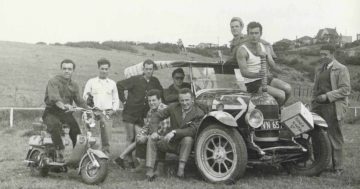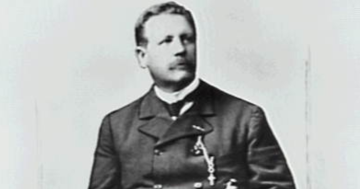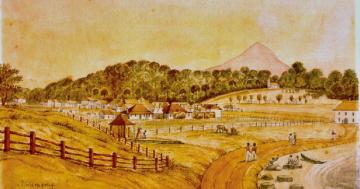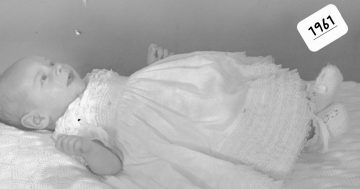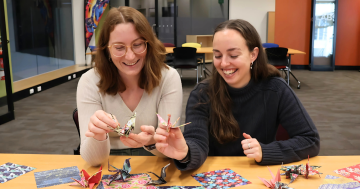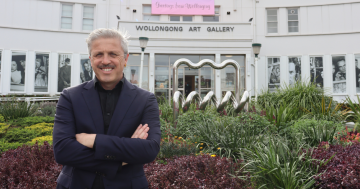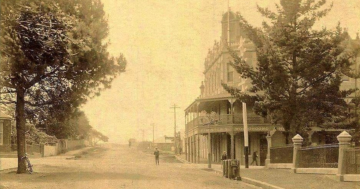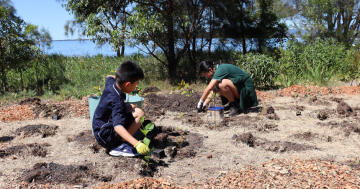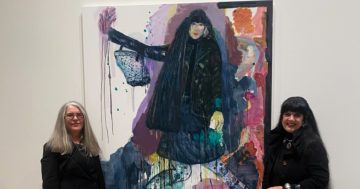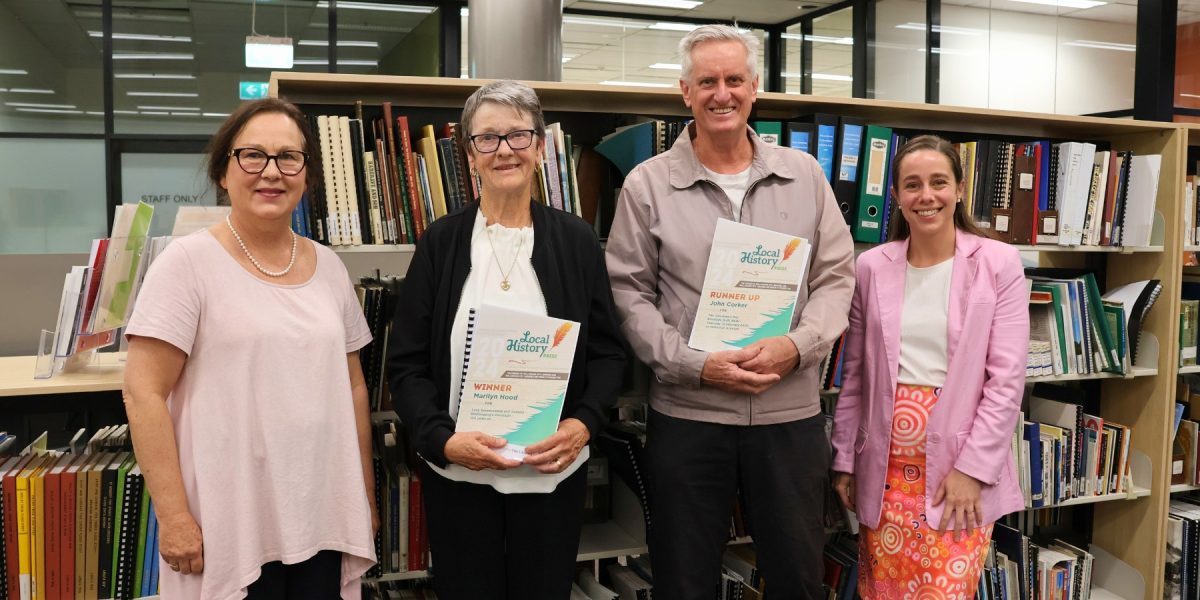
Jo Oliver, Marilyn Hood, John Corker and Jessica Bruce at Wollongong’s 2024 Local History Prize. Photo: Wollongong City Council.
A misinterpreted university project led to an award-winning examination of Wollongong Cenotaph’s century-long presence in our city.
Marilyn Hood is the winner of the 2024 Local History Prize for her paper ‘Loss, bereavement and memory – Wollongong’s Cenotaph – 100 years on’.
Marilyn said she was “gobsmacked” when her name was called out on Monday (9 September).
“I’ve never won anything in my life; it’s unbelievable; it’s lovely,” the Bulli woman said.
She began the paper as part of her master’s degree in history. Unfortunately, the War Memorial did not fit into the time period specified.
“It didn’t become apparent until I’d done quite a bit of research,” Marilyn said.
“I was still able to submit the report but from that, with the encouragement of the secretary of City Diggers, I thought I’d expand it to include the unnamed people who actually made it happen.
“There’s been work done on the people named on the memorial, but I couldn’t find anyone who had looked behind to the shakers and movers who got it built.
“The other part of it was how it morphed from God, King and Country to now representing ordinary citizens.”
Marilyn said her most surprising discovery was the number of women who doorknocked “incessantly” to raise the funds for the memorial.
Most of their names are unremembered.
First awarded in 2016, the biennial prize, generously supported by the Friends of Wollongong City Libraries, asks entrants to submit an original research paper documenting previously unexplored aspects of Wollongong’s history.
An esteemed panel of judges unveiled this year’s winners at Wollongong Library on Monday night.
They determined that Ms Hood’s entry “places the history of the cenotaph and its significance to the local community in the context of a wider discussion of changing understandings of Australian experiences of conflict and public commemoration”.
The judge’s report also said the paper had “a clear narrative, makes good use of primary and secondary sources, uses clear referencing and provides a well-constructed bibliography.”
Marilyn said it was important to understand the people and forces that had shaped our community.
“Local history matters because we are what history made us and unless people come to terms with that fact we are never going to change,” she said.
“The fact that memorial was initially built on white Australian ideals and it has changed is hope that we as a society can change and solve longstanding, inbuilt problems.”
John Corker collected second prize for his entry, ‘The Valentine’s Day Blockade Bulli, NSW, Thursday 14 February 2002: An Historical Account’, an examination of the development battle at Sandon Point.
Judges said the paper offered a “compelling narrative of active, but peaceful community resistance” that “made use of oral histories and original photographs and showed an awareness of cultural connections and significance.”
The entry is the first chapter of a book John is writing about the community’s battle to prevent property developer Stockland from building a new suburb at Sandon Point.
John had moved to Thirroul from Sydney two years prior to the blockade.
He was struck by the many facets of the story behind it.
“There’s the David and Goliath aspect of a small, well-knit community taking on one of Australia’s top public-listed companies,” he said.
“Then there’s the legend of the point, the point boys and the surf break, the rise of environmentalism in the area, the changing demographic down here as more people move down from Sydney. All of a sudden you have multi-million dollar mansions next door to post-war asbestos housing; it’s quite a change.
“Then there were Aboriginal and non-Aboriginal people working together and the natural beauty of the place.
“And it goes on – it’s not over.”
Indeed the story of the Valentine’s Day blockade isn’t just a chapter in John’s forthcoming book, but a single chapter in the extensive political history of the Illawarra’s northern suburbs.
“Wollongong Councillor David Martin said the northern suburbs of the Illawarra have always been fairly militant,” John said.
“You can go back through history and look at the protest from miners out of Bulli over many many years. There’s a history of strength, of solidarity, of not suffering fools gladly.
“I want the people who have moved here in the past 25 years to be aware of that history and its importance.”
Judges, Jo Oliver (WCL local studies specialist), Sarah Taylor (manager libraries and community facilities), Meredith Hutton (National Trust representative member of WCC Heritage Reference Group) and Lorraine Neate (President of Illawarra Historical Society) considered six entries covering a wide variety of topics.
Entries were limited to one per person for the first time, with the panel’s final determination a unanimous one.
Wollongong City Lord Mayor Gordon Bradbery AM said both winning entries would be valuable additions to Wollongong City Libraries’ extensive local studies collection.
“We’re proud to support the important work of local researchers and historians,” Cr Bradbery said.
“Since its inception in 2016, the Local History Prize has attracted a high calibre of researchers exploring fascinating corners of our region’s past. Their research into our past is immensely valuable, both today and into the future.
“This year’s Local History Prize winners have been added to our local studies collection and are now available for members of the public to read. Located at Wollongong Library, the local studies collection features a wide variety of materials, including maps, research papers and publications, that can be read and referenced by members of our community for years to come.”
Marilyn said her $3000 prize would go towards paying off her HECs debt, allowing her to complete her master’s degree.
John said his $1500 prize would go towards finding a publisher for his book.









